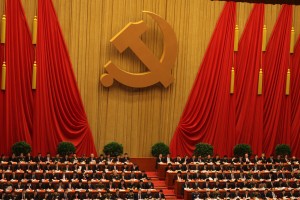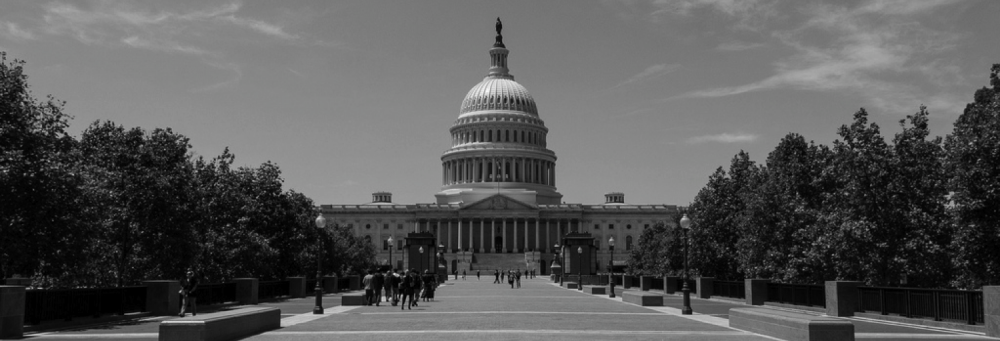 Democracy is considered one of the major achievements of the 1st world, the next step in the evolution of governance guaranteeing stability, equality, human rights and rule of law. To Americans it is fundamental to the American Idea, the essence what the United States are comprised of, and their self-proclaimed proudest export. To Europeans and Americans alike Democracy indicates whether a nation is modern and civilized and can be a reliable partner or is backward, corrupt and fundamentally flawed. Democracy is also regularly considered the final form of government. There is no discussion about alternatives and rarely a discussion about possible improvements. It is accepted as a given and a constant not worth questioning.
Democracy is considered one of the major achievements of the 1st world, the next step in the evolution of governance guaranteeing stability, equality, human rights and rule of law. To Americans it is fundamental to the American Idea, the essence what the United States are comprised of, and their self-proclaimed proudest export. To Europeans and Americans alike Democracy indicates whether a nation is modern and civilized and can be a reliable partner or is backward, corrupt and fundamentally flawed. Democracy is also regularly considered the final form of government. There is no discussion about alternatives and rarely a discussion about possible improvements. It is accepted as a given and a constant not worth questioning.
There are good reasons for holding democracy in such high regard. Particularly its greater ability – in contrast to systems like monarchy or aristocracy – to express the wishes of the majority of the governed instead of a small privileged fraction of its populace only. But it is also true that democracy, as monarchy or aristocracy, is just another form of governance. Democracy is not perfect. It has significant strengths as well as weaknesses, it is not inherently superior and it is not suitable for all countries alike.
Winston Churchill once said that “The best argument against democracy is a five minute conversation with the average voter.” The quote describes accurately one of the major challenges democracy faces. A viable election requires educated voters who are knowledgeable about issues and candidates. In reality, however, only a small minority of voters is actually aware of the current state of its country and could argue his or her position on the issues and most know little about the candidates’ convictions. Voting campaigns are promotion campaigns, often untruthful and helping little to enlighten voters on what they are actually voting for.
Educational platforms and tools that offer transparency by benchmarking parties and candidates exist but are not mandatory and few voters have the drive to educate themselves before casting their vote. Putting tests in place that prohibit voters to participate who are not knowledgeable about the choice they are about to make would be considered undemocratic and elitist.
The results are that voters vote against their own best interests and at times elect leaders that are patently unfit to lead. The status quo is reinforced and no meaningful progress is achieved. The societal evolution is slow and usually only in situations of crisis allows for rapid change.
 Yet, despite the problems democracy faces, there is little will for reform and competing systems of governance are treated with condescension. China is one example of such behavior. The country’s one-party system is called a dictatorship and considered illegitimate. This attitude, however, fails to realize that China’s system allows for a much more rapid decisions process than a democracy would which is tantamount to the country’s breathtaking development over the last 30 years that has lifted millions out of poverty. It also fails to acknowledge that China still is a vast developing country and it educational standard has yet to catch up with the West. A great part of its populace would be utterly oblivious to what and whom to vote for if offered the opportunity rendering a viable democratic process unachievable. Lastly, it fails to understand that a party as large as the Communist Party of China never can be one monolithic block. China simply packages many parties in one. There are many factions within the party and arguments exist but the eventual decisions for the country are then executed with one voice.
Yet, despite the problems democracy faces, there is little will for reform and competing systems of governance are treated with condescension. China is one example of such behavior. The country’s one-party system is called a dictatorship and considered illegitimate. This attitude, however, fails to realize that China’s system allows for a much more rapid decisions process than a democracy would which is tantamount to the country’s breathtaking development over the last 30 years that has lifted millions out of poverty. It also fails to acknowledge that China still is a vast developing country and it educational standard has yet to catch up with the West. A great part of its populace would be utterly oblivious to what and whom to vote for if offered the opportunity rendering a viable democratic process unachievable. Lastly, it fails to understand that a party as large as the Communist Party of China never can be one monolithic block. China simply packages many parties in one. There are many factions within the party and arguments exist but the eventual decisions for the country are then executed with one voice.
In the end the merits of the form of government are evident in its ability to produce good leadership and peace and prosperity for its people. The western democracies should not accept the mantra that there are no possible improvements to their form of government, that it indeed is the best option for every country and that competing forms of governance are inherently inferior regardless of the history, societal and economic development of the country in question. Democracy doesn’t grant moral superiority. Only actions do.

